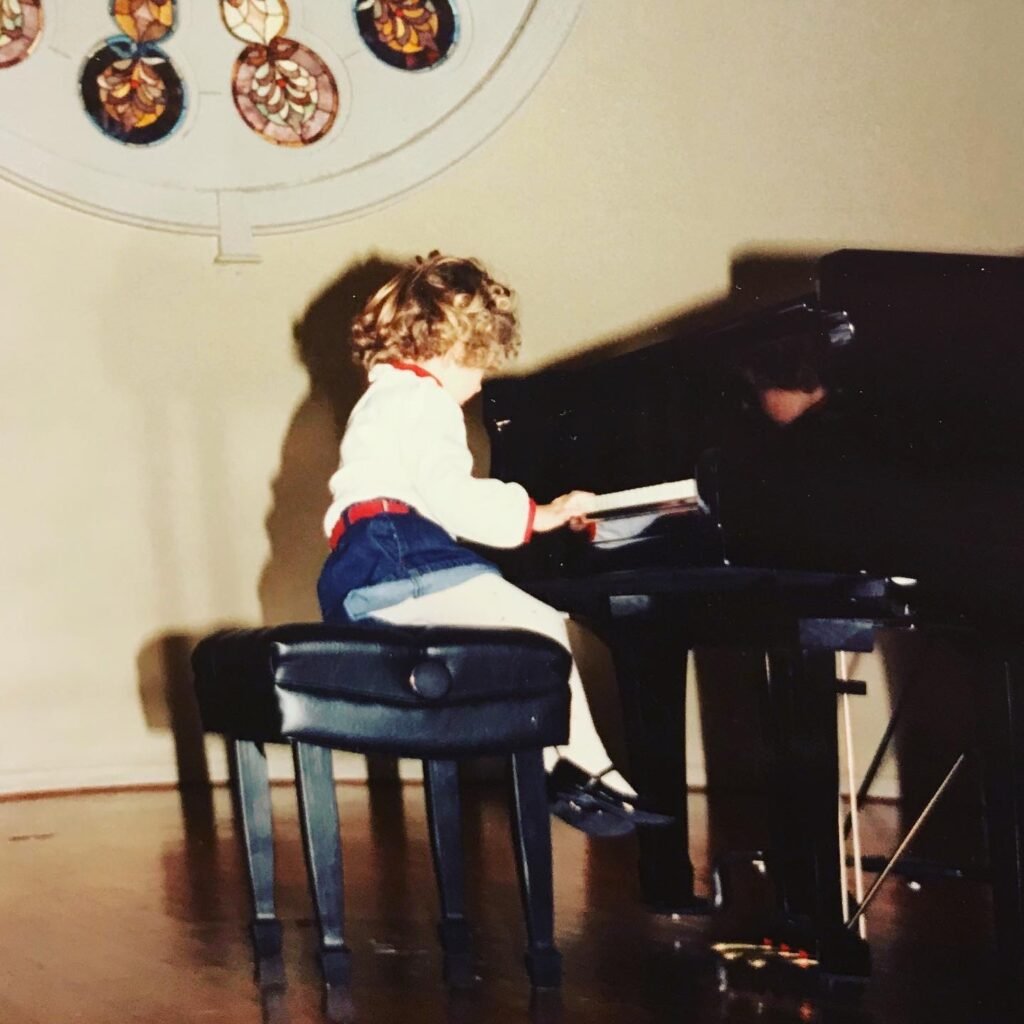By taking music lessons from an early age, I learned a myriad of life skills along the way. Many of the skills on this list were developed long before I went to college for violin, but it was in my undergrad, and every day since as a professional musician (and student off and on), that I have learned to hone these valuable life and professional skills.

Learning more than just musical skills
Parents frequently want their children to take music lessons from a trained musician to boost the student’s skills and prepare for future college applications and resumes. They, however, are signing their kids up for way more than just an additional activity. Music lessons and training can help students (of any age) develop some very useful life skills.
As a music student and a professional musician I have worked a lot and learned (how to):
- Manage time and tasks
- Be organized
- Set goals
- Be detail oriented
- How to show respect
- Have high standards
- Be tough
- Show Resilience
- Foster Creativity
- Compete with oneself instead of others
Let’s look at a few of these more in depth:
Managing time and tasks
Obviously, there are only 24 hours in a day. We cannot spend every waking hour practicing and perfecting our craft, so if we don’t learn how to manage our practice time well, we fall behind. I see this happen a lot with college freshmen. One of the biggest things my students talk to me about is the need to learn better time management skills. By the time they are sophomores and juniors, many have figured it out. It helps them, it helps me, and everyone lives a happier and healthier (musical) life for it!
One of the ways I teach my students how to manage their time in the practice room is how I set up the lesson flow. I break down the hour in chunks, begin with scales or etudes, then move to repertoire. In their lessons we workshop certain spots and the idea is they learn to practice while learning in the lesson.
Over the summer I started offering guided practice sessions. This has helped tremendously. It not only builds community but also helps students structure an hour of practice.
Organizational Skills
I despise disorganization. It drives me batty. To me, organization is not just the act of putting everything in its rightful place. Organization also encompasses forethought and planning.
Organization is crucial when you run a teaching studio, freelance, and have a university job. Without proper organization and time management skills, life can be an absolute mess.
Here are some of the ways I stay organized:
All my appointments and lessons are recorded in Google calendar, however, I also write them down in my Erin Condren Life Planner.
Each month I send invoices using QuickBooks Self Employed Students can either pay through the invoice or send their payment via zelle.
I use Google Docs and share files with my university students
At the end of each month, I check in with my students on scheduling. Sometimes, I check in weekly to confirm.
Goal Setting Skills
Learning to set a realistic goal and achieve it is one of my favorite skills! Many times, folks set an unrealistic goal, then struggle to reach it. This leads to burn out, defeat, and overall bad times. So, stop setting stupid goals that you are guaranteed to fail at. Try setting something attainable instead. Start with baby steps. Music life has taught me this in a big big way. Every once in a while, you get a piece that is just insane. Everything in it is difficult. So, how do you tackle it? Set small goals over a period of time, then get after it!
Being Detail Oriented
This is related to organization, but is listed separately because they are not technically the same thing. Some people are EXTREMELY detail oriented when it comes to particular tasks and items. For instance, some people mark their music meticulously but couldn’t organize a concert, meeting, or event to save their lives. Those, of course, are extreme examples, but the details are crucial to being a musician. One must pay close attention in order to be successful.
Being respectful
Oof. This is a tough one. I’ve learned to be respectful not just in musical settings but in all settings. Unfortunately, many of the lessons I’ve learned in this category have come at the cost of being profoundly disrespected. I’ve learned this lesson best from those who were disrespectful. They taught me how not to talk to students, how not to speak to colleagues, and how not to interact with others.
When you treat people respectfully, and take the high road you set yourself up to be treated well. If the person on the other side doesn’t follow the same rules you do, that’s on them, not on you. While it can be really difficult to always take the high road, it is really the only way to go without burning bridges and being rude.
As a teacher, one way to show respect to students is to make expectations and boundaries clear. By making very clear expectations and boundaries you set the student up to be successful. This shows the student that you respect them while also requesting respect in return.
Respect is a two way street. We tend to get back what we put out there.
Looking ahead at the other skills
Over the next few weeks I’ll be writing more about some of the other skills on this list, but for now I hope you have found this useful!
